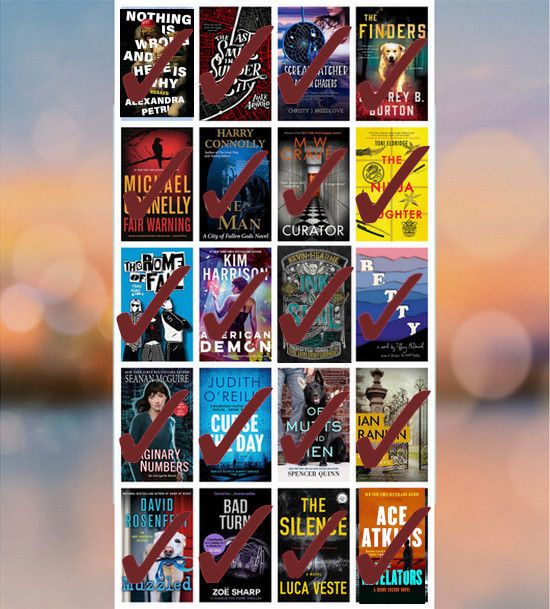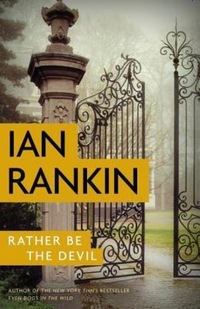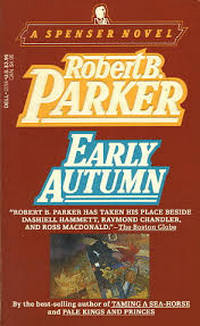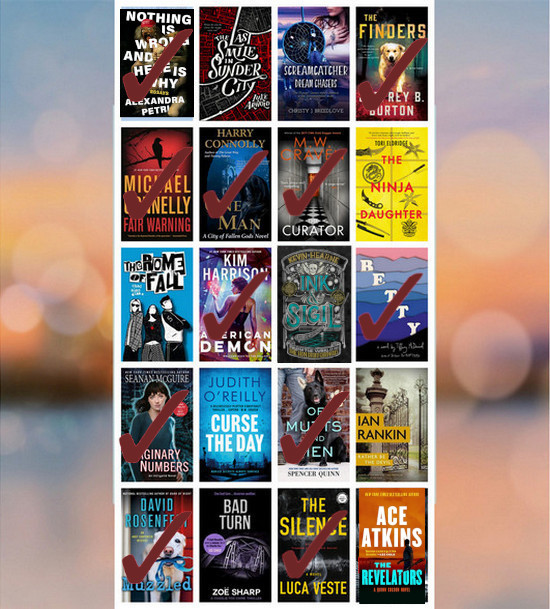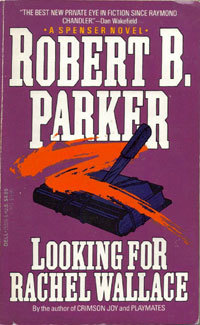 |
Silent Biteby David Rosenfelt eARC, 304 pg. Read: September 16-18, 2020 |

Wow. Andy Carpenter #22. That’s hard to believe. It doesn’t seem that long ago that I started reading these (I think back in the single digits). But all-in-all, it’s been a fun ride. How’s this one stack up?
What’s Silent Bite About?
When Andy and his family return from a holiday cruise (a novella describing that in more detail than we got here would quickly become a fan favorite, no doubt), he’s got a bunch of messages from Willie Miller. A friend, and former cellmate, of Willie’s has been arrested for murder. Both Willie and his friend, Tony Birch, want Andy to take the case and clear him. Andy wants nothing to do with a problematic looking case*, but Willie’s a friend—and Andy’s son, Ricky, has pointed out that Willie does stuff for Andy all the time. Also, Tony has a dog that’s miserable without him around.
* or any case, really.
The murder victim is one of the witnesses against Birch for the manslaughter charge that put him in prison with Willie years ago. At the trial, Tony threatened to kill him (and a few others) for turning on him, after years in a gang together. But upon his release from prison, years before this new murder, Tony had turned his life around—he owned and operated a fairly successful auto repair garage, and had no interest in criminal activity again. So why seek vengeance now?
And why be as utterly stupid with the murder weapon as the prosecution wants people to believe?
But then another witness against Tony in the original case turns up dead, and things start looking really bad for him. So it’s up to Andy and his team to save the day.
Zoey, the Nova Scotia Duck Tolling Retriever
I really don’t have much to say about Zoey, Tony’s dog, but I’ve never heard of her breed before—and I don’t feel too bad about that Andy hadn’t seen one before. If your day could use a little lift, take a minute or two to scroll through some pictures online. Cute dogs.*
* That’s a tautology, I realize.
The New Associate
In most of his cases, Andy Carpenter utilizes an associate to do the ugly detailed work, filing motions, looking up pertinent case law, and so on, while Andy goes around visiting people, investigating, getting saved from certain peril by Marcus Clerk, and being snarky and clever in court. He started with Kevin Randall, who owned a laundromat and gave legal advice to those who couldn’t afford it. He eventually moved on and Hike Lynch moved in—largely, I think because Hike is a more entertaining character than Kevin. Well, Hike isn’t around for this one and he suggests Eddie Dowd step in.
Eddie used to play for the Giants, but a knee injury ended that career, so he went to law school. He speaks almost entirely in sports phrases (spike the ball, put me in, pitch in, and so on). It’s fairly ridiculous, but when done right, it’s pretty funny. He’s a nice change from the Eeyore-like character that Hike had been. I’m not sure if he’ll be back, or if Hike will return—I’ll be glad to see him if he is, even if it seems like the joke about his figures of speech will get old. I have faith in Rosenfelt. I’d have thought that Hike’s extreme pessimism or Kevin’s hypochondria would.
So, what did I think about Silent Bite?
I thought the identity of the killer was pretty obvious, but Rosenfelt’s execution of the reveal and of keeping Andy from seeing the solution all along sold me. I can’t be more descriptive of that because I don’t want to tip anything. It was a great conclusion to a really solid legal thriller, that comes with all the canine affection, snappy dialogue, some clever courtroom action, and a solid plot. Pretty much what the doctor ordered.
Once we got The K Team this year, with Muzzled as well, I didn’t figure we’d have a Holiday Andy Carpenter book. Then when I saw this was coming, I worried it wouldn’t live up to the other Holiday books in this series. I kept being wrong about this book—we got it and it wasn’t a let-down. Rosenfelt managed to give us three strong novels in 2020 (hey, look, 2020 didn’t wind up in a disaster on one front!)—that right there, folks, is a sign of a professional.
Whether you’re new to the world of this would-be retired criminal defense lawyer and are in the mood for a witty and sharp legal thriller, or if you’re familiar with Andy and his associates—this will entertain you. You’d do well to give this a shot.
Disclaimer: I received this eARC from St. Martin’s Press via NetGalley in exchange for this post—thanks to both for this.

This post contains an affiliate link. If you purchase from it, I will get a small commission at no additional cost to you. As always, opinions are my own.
![]()


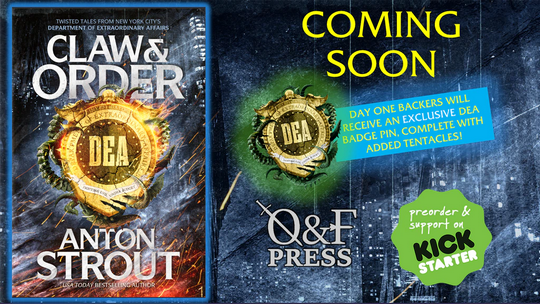


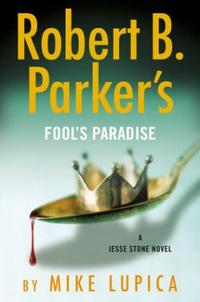

 1.
1. 